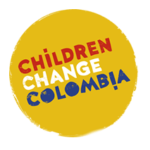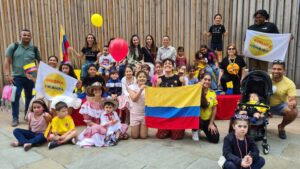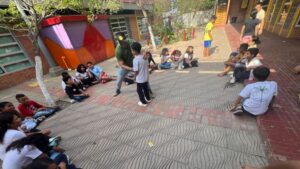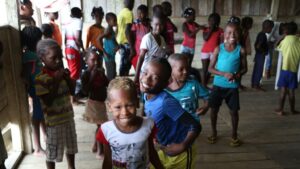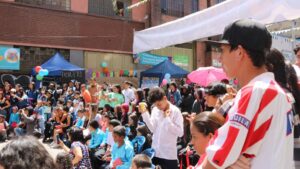Cada 20 de julio, colombianos de todo el mundo se unen para celebrar la independencia de su nación, un momento no solo de importancia histórica, sino también de orgullo cultural6 July 2022
Read MoreMental Health and Youth Reintegration into Society
Our mental health drives the way we feel, think and act, and impacts our emotional, psychological, and social well-being. The state of our mental health can be affected by many factors, and especially in Children and Young People (CYP), a lack of guidance from a trusted figure and an unsupportive social environment can be detrimental. CYP’s mental health is greatly impacted by traumatic events, sudden changes in their lifestyle, and emotional turmoil due to hormonal changes and puberty.
Causes of Trauma for Children in Colombia
In Colombia, the constant exposure to violence that young people experience has resulted in negative effects on their mental health, particularly relating to trauma. Children in Colombia experience a childhood that is far from what is deemed normal and safe for their wellbeing. Many grow up in neighbourhoods targeted by armed groups in Colombia looking to recruit and terrorise communities, while also being deprived of formal education either by having to join the labour market at an early age to help their families, or because they suffer from substance abuse, or they are victims of violence, including intrafamilial and by members of their community. In addition, some children in Colombia are also left without a support network to teach them how to manage their feelings or process the experiences they have been exposed to, which in turn, represses trauma and leads to the development of mental illness and deteriorating physical conditions such as cardiovascular problems.
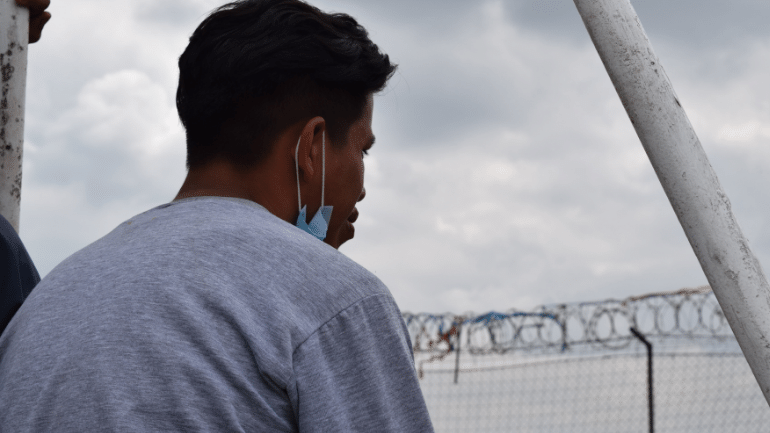
Reintegration of children formerly involved with Armed Groups in Colombia
When CYP leave armed groups and gangs, Colombian institutions offer them support so they can have a successful reintegration into society. However, the stigma around their participation in day-to-day life continues to dominate the discourse nowadays and leads to mistreatment from the communities they return to, leaving them insecure and revictimized. Children in Colombia in this situation lose their childhood and lose their possibilities for recreation, study, and family time. The reintegration process of CYP is seen with fear, mistrust, anguish, dread, difficulty in assuming new challenges, loss of autonomy and other challenges that affect young people’s behaviour and mental health.
The Situation in Colombia
Between 1958 and 2020, more than 17,000 minors were involved in child recruitment by armed groups in Colombia. Moreover, 15,000 children and young people between the ages of 14 and 17 have gone through the restoration of rights facilities after being involved in Colombia’s armed conflict. Colombia’s capital, Bogotá, is home to 20% of the children under the penal code. Children who find themselves in these types of situations come from the most marginalised communities and regions, where they grow up suffering familial neglect and violence and finding little to no support in their communities. They also tend to suffer from substance abuse, something that is only worsened when they are recruited by illegal armed groups. These armed groups threaten and terrorise young girls and boys as a method of recruitment, something that causes long-lasting trauma to victims of this abuse. Many of the children that are recruited have become house providers and are involved in child labour, although many times, due to their young age, are excluded from the labour market. This leaves them in a vulnerable place, experiencing the stress of providing economic support to their families, and resorting to joining gangs and armed groups in Colombia to sustain themselves and their families.
Although the Colombian Social Services mandates that psychosocial help needs to be provided to children who enter restoration facilities, no programme is currently in place to address this requirement. Young people who are part of institutional programmes for reintegration and reinstatement of rights are prone to develop new traumas as a result of the social exclusion they face, as they tend to feel displaced, uprooted, and isolated, causing emotional crises, anxiety, and depression. Reinstatement of rights facilities are centres that work to prevent CYP from getting involved with criminal groups. Furthermore, these programmes tend to treat the child as a passive subject of medical care, as interventions tend to centre around addressing individual effects of trauma, and not about encouraging the young person to fully recognise their own voice and individual experiences. In addition, the little attention given to community-based interventions means safe and protective community environments are not achieved, as stigma around these children continues to exist in these communities, leading to these children being mistreated or left without a support system when they leave the institutional programme.
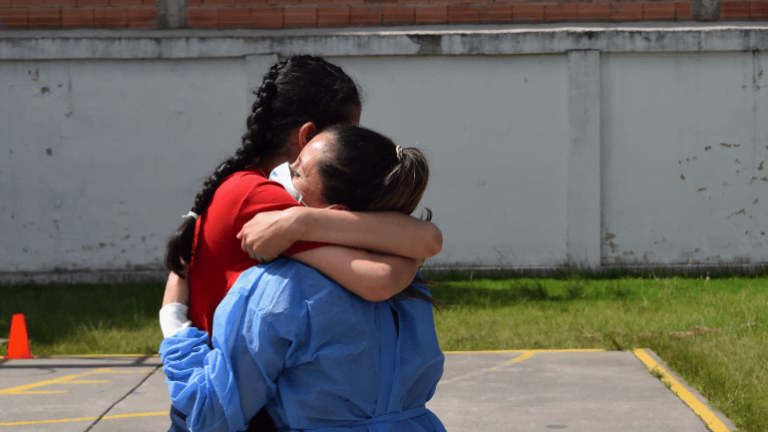
The Project
After identifying this issue, Children Change Colombia has partnered with Tiempo de Juego (TDJ) and the Centre for Restoration and Child Care (CRAN) to introduce a community-based project aiming to reframe narratives of trauma and stigma through the production and dissemination of audio-visual content made by the CYP. In addition, it aims to build protective and safe environments where adults are responsible for ensuring long-term healing and wellbeing. This project wants to enhance positive relationships within the community that young people are a part of and use narratives of resilience to create protective and healing environments for those CYP who return to their neighbourhoods.
The Partners- NGO Colombia
TDJ has found that when young people complete their time within institutional centres, they do not have the socio-emotional skills or the support networks required to build a safe, crime and drug-free future for themselves. TDJ and CRAN, both Colombian NGOs, have over a decade of experience working with young people previously involved with armed groups and are at risk of going through juvenile detention as part of their formal reintegration and restitution of rights programmes. The partnership between Children Change Colombia, Tiempo de Juego and the Centre for Restoration and Child Care comprises a team that understands the mental health needs of young victims of conflict, violence, and economic scarcity.
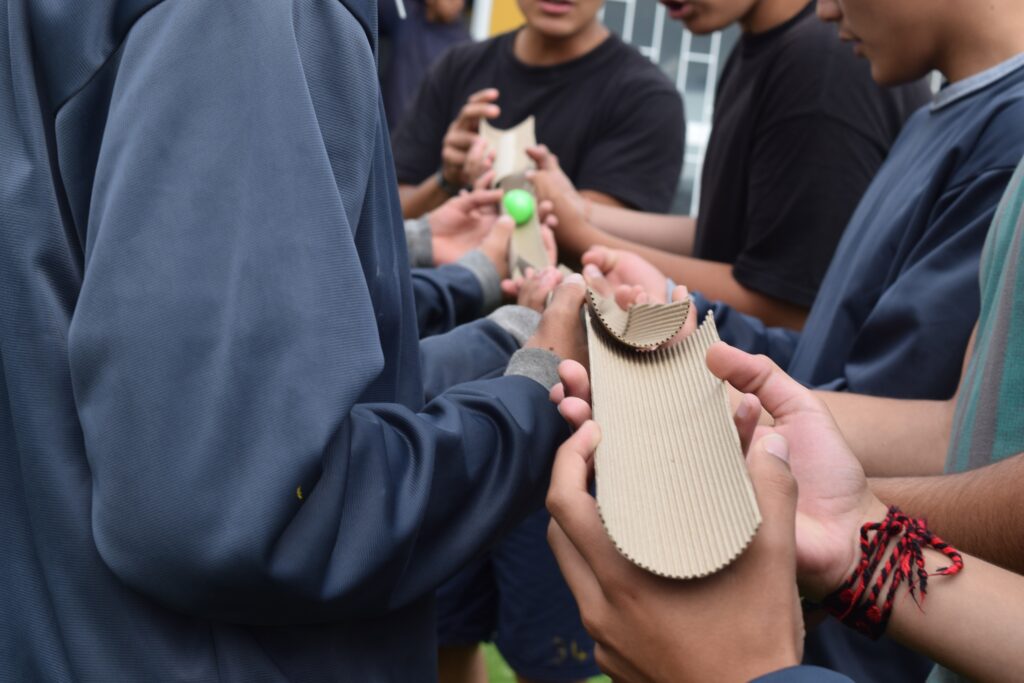
Benefits of the Project
Young people need support from families and communities because they help to promote well-being and positive mental health patterns in children’s lives. The systemic approach of this project will allow children in Colombia to regain a sense of safety in their communities and heal their past social traumas and their emotional wounds. Since the majority of communities have access to audio-visual art and productions, there is a higher potential to raise awareness among different audiences – such as families, professionals, public and private entities, etc – to overcome stigmas surrounding these young people recovering from child recruitment in Colombia. Furthermore, the use of technology can help young people develop skills and tools that will be useful for them when looking to enter the labour market. This project will also seek to continue developing socio-emotional skills and tools in young people, to ensure their mental health is looked after and they have the instruments to take control of their wellbeing.
How are we working towards this goal?
CRAN and Tiempo de Juego will assess the mental health of 750 young people in centres Bogota and Villavicencio. Within these centres, professionals trained in the community-based approach will be working with children, families, and communities to create protective environments through developing children’s rights and teaching adults how to help them heal, learn and grow.
The children will be given sessions on writing production, podcast/radio production and workshops on audio-visual content creation in order to teach CYP the skills needed for them to create their own content to be shared with communities where they can showcase their journey and their voice. Audio-visual content production is a great tool for telling these young people’s stories because it is an engaging activity to work on as a group and will allow them to overcome their trauma by addressing it and being allowed to deal with it in a supportive environment. It is also appealing and attractive to the audience it will be shown, in order to destigmatise and challenge negative preconceptions that exist surrounding these CYP. Psychosocial sessions will also be conducted to equip CYP with emotional and social tools to manage their mental health and strengthen their leadership abilities. In addition, young people will form part of the staff of these programmes, providing a youth-friendly approach and building on feedback from youth that have been through the same situations as the CYP this project aims to help.
We look forward to seeing how this project helps CYP in Colombia and gives them the tools to take control of their mental health and environments.
Did you like it? Share it
More News
Colombian Pride in the Diaspora: Celebrating Identity and Independence in London
Every July 20th, Colombians around the world come together to celebrate their nation's independence, a moment not just of historical significance, but of cultural pride and community.
Read MoreToque Nutritivo: Conexión a través del contacto con los niños y niñas de Colombia
En toda Colombia,Children Change Colombia y Blossom and Berry están colaborando para capacitar a líderes locales en técnicas de contacto nutritivo, brindándoles las habilidades y calificaciones necesarias para convertirse en6 July 2022
Read MoreNurturing Touch: Connection through contact with Colombia’s children
Across Colombia, Children Change Colombia and Blossom & Berry are collaborating to train local leaders in nurturing touch techniques, giving them the necessary skills and qualifications to become facilitators and6 July 2022
Read MoreLlevando Colombia a Londres: Una celebración de identidad, comunidad y alegría
Diseñado para celebrar y fortalecer la identidad cultural, 'Colombia Colores' ofrece una experiencia alegre e inmersiva donde los niños exploran la herencia colombiana a través del canto, la narración de6 July 2022
Read MoreBringing Colombia to London: A colourful celebration of identity, community, and joy
Designed to celebrate and strengthen cultural identity, ‘Colombia Colores' offers a joyful and immersive experience where children explore Colombian heritage through singing, storytelling, traditional music, dance, and play.
Read MoreMy Body, My Rules: The Right to Say NO
You have the right to decide about your body. You have the right to say NO And no one, absolutely no one, has the right to force, manipulate, or pressure6 July 2022
Read MoreMi cuerpo, mis reglas: El derecho a decir NO
Tú tienes derecho a decidir sobre tu cuerpo. Tienes derecho a decir NO. Y nadie, absolutamente nadie, tiene derecho a obligarte, manipularte o presionarte a hacer algo que no quieres.
Read MoreCommunity as a Superpower: Supporting Venezuelan Refugees in Colombia
In times of crisis, the importance of community becomes especially clear, particularly for children. Displacement, instability, and hardship can leave young people vulnerable, uprooted from familiar environments, and cut off6 July 2022
Read More